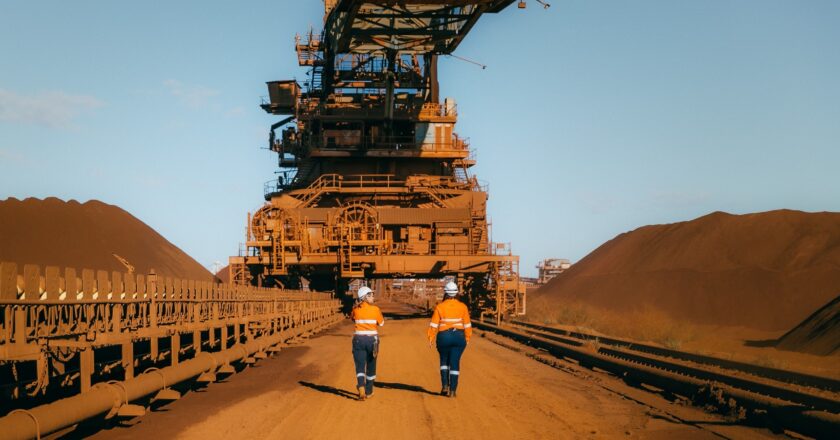BHP has given the green light to its $1.4 billion port debottlenecking project 2 (PDP2) at Port Hedland, marking a major investment aimed at enhancing long-term operational resilience.
The project will see the installation of a sixth car dumper (CD6) along with additional conveyors and supporting infrastructure.
“We have medium-term plans to maintain WAIO’s production of 305 million tonnes per year, and this upgrade of infrastructure and technology allows us to support it,” BHP Western Australian Iron Ore asset president Tim Day said.
“The project is a major step forward to boost our supply chain resilience, unlock capacity and drive productivity across our operations.
“The Pilbara is the engine room of the Australian economy, and this investment will ensure it keeps firing.”
Car dumpers at Port Hedland tip two 135-tonne rail cars at a time, enabling up to 16,000 tonnes of Pilbara iron ore to be unloaded per hour.
The ore is then moved via 5km of conveyor systems to stockpiles or directly to ships. BHP currently operates five car dumpers across its Nelson Point and Finucane Island operations.
Once operational, CD6 will significantly increase car dumper availability, with the port running with at least five car dumpers more than 90 per cent of the time, up from around 60 per cent today.
The project is designed to improve operational reliability, consistency and ore blending and screening capabilities.
Beyond productivity, PDP2 is expected to deliver local economic benefits. Over the three-year construction period, BHP will prioritise awarding contracts to Indigenous and Traditional Owner businesses as well as local Port Hedland suppliers.
Work on the project is scheduled to begin in December 2025, with first ore expected by the fourth quarter of 2027–28 financial year (FY28). PDP2 follows the successful completion of the port debottlenecking project 1 (PDP1), which unlocked enhanced car dumper and ship loader performance.
Last financial year, BHP’s Western Australia Iron Ore set a full-year record production of 290 million tonnes on a 100 per cent basis, alongside record shipments.



